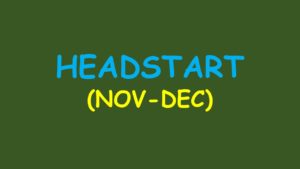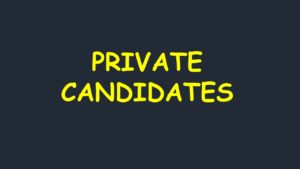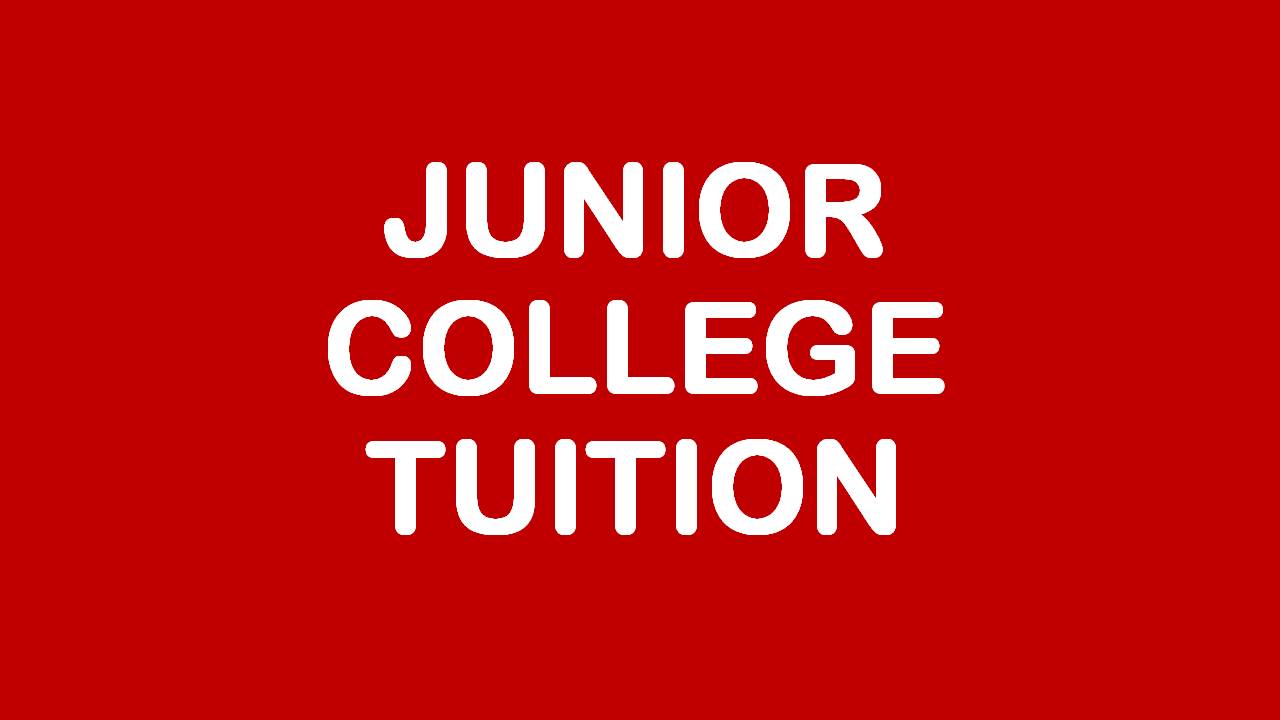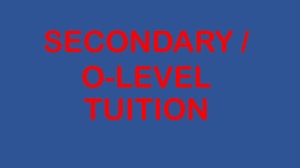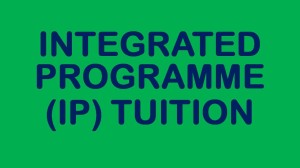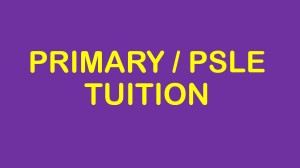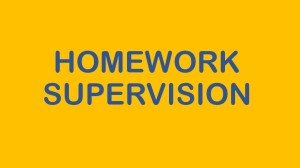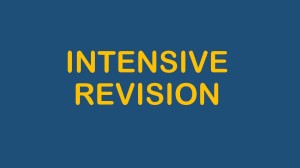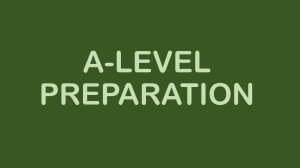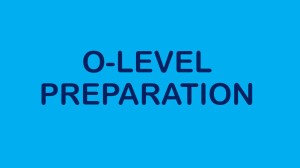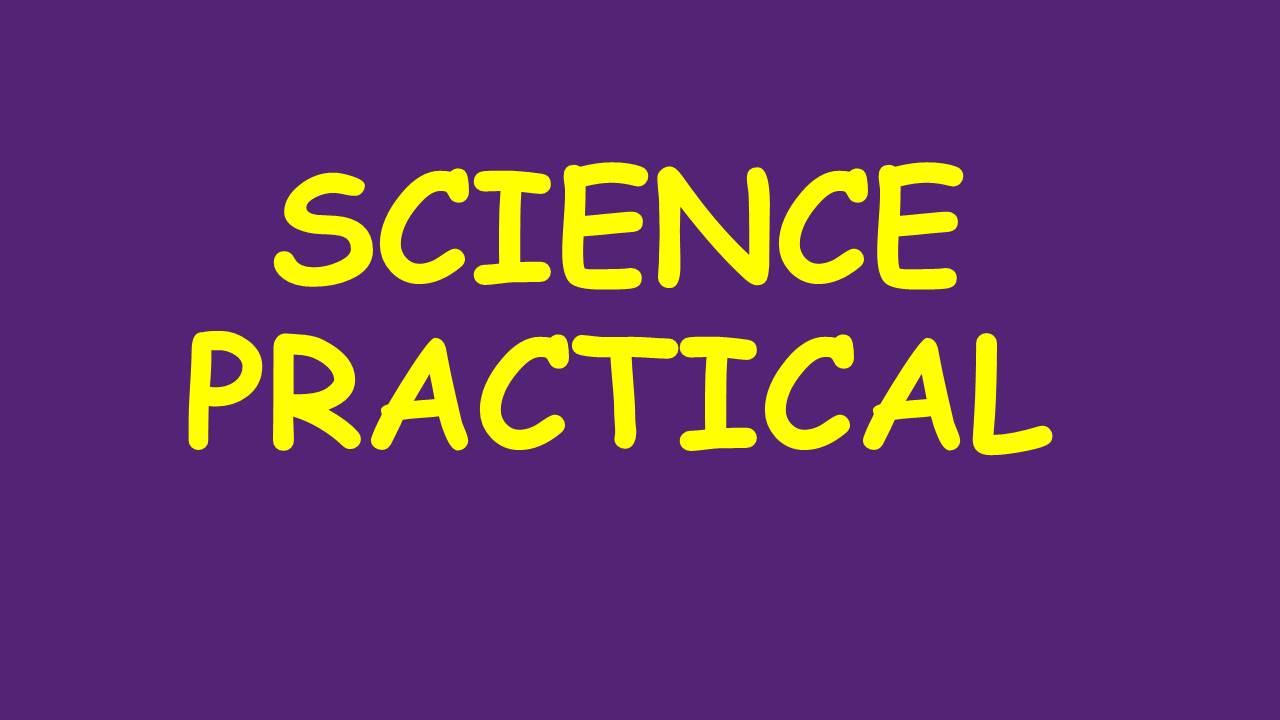If you are confident of being in the top class of a top school, go ahead and choose that school. This normally happens to students who have PSLE aggregate scores of more than 270. But if you happen to be in the bottom 20% of those admitted to a particular school, chances are, you will eventually not be in the top class of that school for your level.
What are the implications of not being in the top 20% of a school? In many schools, only the top 80 pupils get to do the Triple Pure Sciences plus A. Math in Sec 3, the subject combination that gives you the most choices when choosing subjects to do for the A-levels. Some schools even have only one such class. These top students are selected based on their end-of-year streaming exams in Sec 2.
The exams in top schools are of course difficult, thus many Sec 2 pupils in top schools find themselves disqualified from doing the Triple Pure Sciences (TPS) in Sec 3. If you are in IP school and doing badly, you may be barred from doing at least one Pure Science subject in Year 3. Thus a student who scored 240 in the PSLE may end up doing TPS in a ‘neighbourhood’ sec school whereas one who scored 252 to enter a top school may eventually be deprived of doing A.Math or one of the pure sciences only because the latter school set much harder exam questions in Sec 2!
Parents often forget that their once top-performing children may end up being the worst performing students in a top school, a result of being a small fish in a big pond, a possible reality that many students and their parents are not ready to face, after spending 6 years in a primary school where the child was the “darling” of the principal, HODs and teachers. Let me give you a few examples of the devastating effects of being an average or bottom student in a top school. I shall begin with my own experience:
(1) I did not work hard enough when I was in Sec 2 in RI in 1986. RI test and exam papers were tough so I had mediocre grades. Thus I was not given the option of doing Pure Biology. I could only take the Physics-Chemistry-History-Literature combination, in addition to other compulsory subjects. That meant I would not be allowed to do Biology at A-level, and at that time, Biology was a compulsory subject for choosing Medicine and Dentistry at the NUS. Thus many of us could not eventually become doctors simply because we did not do very well at RI’s sec 2 exam papers. Had I gone to a school near my home then, I’m sure I would have been in top 20% of that school as I was already in the top 2% at the national level for my cohort!
(2) Very recently, an NJC student has not been allowed to do H2 Math or H2 Chemistry in his Year 5. This means he will be excluded from ALL Science, Engineering or Medicine-related courses at most universities. With a PSLE score of 257, I’m sure he wouldn’t have been in the same predicament had he gone to do O-levels in a sec school whose COP is around 235-240, as NJC papers are way tougher than the papers of most schools at Sec 4 level.
(3) An RVHS student was retained in his Year 4 because of poor results. Imagine that your friends from non-IP schools getting places in JCs while you still have to struggle to pass your own school exams in Sec 4 again chiefly because your school sets harder exam papers. Repeating a year can be very hard for a student, both academically and psychologically.
(4) A HCI student was asked to take the O-levels instead because of poor performance. I found his academic standards below that of students from lesser known schools. This must have been a case of being demoralised from right from Sec 1. And he was NOT the only such case from HCI or NYGH that ended up with me since I started tutoring in 2004.
The above are just a few real examples. There many more cases of IP students being asked to do O-levels or leave the school to find an O-level school, or students in some top schools (IP or non-IP) being retained. The less serious cases involve students in top schools not being allowed to do certain subjects such as A. Math or a Pure Science. My point is that these very good PSLE performers might have fared better in less ‘prestigious’ schools, acing the O level exams and going on to top JCs and eventually getting 4 A’s at the A-levels. For example, I had a tutee (with very good PSLE score) who came from Tanglin Sec, went on to PJC and obtained enough A’s at the A-levels to get a place in a much-sought-after course in a prestigious university.
Some parents and students also have this mistaken idea that top schools have better teachers and better academic materials. BOTH of these perceptions are often wrong. If you are in a top school, most of the teachers EXPECT you to be either smart (can’t blame them on this right?) or have tuition. They teach fast and set very hard test and exam papers. Do they sound like nurturing or caring teachers to you? Top schools become top schools simply because they take in top students to begin with, not because they take in poor-performing students and are able to turn them around through skilful teaching.
In summary, to me, consistently being in the top class of your school is very important, regardless of which school you are in. And it’s just common sense that it is easier to academically dominate a good school than a top school.
There is NO NEED to compare your results or choice of school with friends or relatives or neighbours, or desire to be part of a ‘Top’ school. There is no need to be egoistic or elitist. There is no need to be exclusive, else you’d find yourself being excluded from many good things in life. Let others do what they want. You must have your own clear idea what of success means. The end is almost always more important than the beginning. How you END your formal academic training matters more than how you started.
Ilyasa
About myself:
I was a secondary school teacher for 3 years before becoming a tutor in 2004. I also taught in a private school and in an international school. I’ve taught Math, Science, Physics and Chemistry to all kinds of students from Pri to JC and from all streams: Express, NA, NT, IP and IB. From my students and their parents I’ve learnt a lot about the various schools in Singapore, their problems, their strengths and so on. I also come from a family of teachers, and many of my friends are also teachers, HODs, VPs and Ps. I tutor my own children and they all have become proficient in Math and the Sciences. My youngest daughter just got her PSLE (2016) results and this will be the 3rd time I’m going through this school selection process. If you have any questions regarding schools, education or about tuition, feel free to contact me at 97860411. I will help answer your questions as best as I can. All the best!
FREE SEC 1 MATH TUITION AT SINGAPORE LEARNER!
(1) Choosing a secondary school …
(2) Beware the critical years in math education in Singapore …
_______________________________________
TUITION CLASSES:
_______________________________________________________________
EDUCATIONAL SERVICES:
______________________________________________________________
By EX-MOE TEACHERS & EXPERIENCED TUTORS
@ BLK 644, BUKIT BATOK CENTRAL, #01-68. S(650644).
CALL 65694897 OR SMS 98530744 OR 97860411.
Choosing a secondary school …
The following are some of the factors (not in order of importance) you may want to consider in wisely selecting a secondary school:
(1) Location / Distance of school from home: Secondary school students have a lot of work to do (academic and CCA), so please factor this in and not just think of how prestigious the school is. When I studied in RI from 1985 to 1988, I was staying at Chai Chee Road, and had to travel about 1hr 15 mins to Grange Rd almost every day. RJC was then, at Mt Sinai Rd, even further and the travelling time became 1.5 hrs. Thus I was sleepy most of the time and did badly in school tests and I did well only at the major national exams as we were allowed home study time. Today, we are staying at Bukit Batok and my daughter’s school is just a 5 min drive away, and she’s doing very well in school.
(2) Type of school (Integrated Programme; O-Level, IB etc): I had posted another article on the pros and cons of going to a school where students skip the O-level exams. This is something you have to consider carefully – the significance of not having an O-Level certificate. Remember that not all IP school students make it to Year 6, and of those who do, some are ill-prepared to take a high-stakes national exam and end up with poor A-Level grades. I’ve also posted another article on IB vs A-Levels.
(3) CCA available: I know of a student who goes to a particular school because that school provides Lion Dance as a CCA. Not all schools provide Rugby, Soccer or Fencing etc. So if your child has a strong interest in a particular CCA, it is important that you check out whether that CCA is available in the desired school.
(4) Subject Combination for O-levels: Some schools do not provide Economics and some schools don’t even have Tamil Language. In some schools, it is compulsory for all its Sec 3 students to take up A. Math and Chemistry. And some schools do not provide O-Level Literature or Art. And how many triple pure science classes does the school normally provide?
(5) Niche area: Some schools are better equipped for Sports, some for Science and others for the Arts.
(6) Co-Ed or Single-Gender: It is still a debate whether single-gender schools are better for teenagers than dual-gender ones. Some prefer daughters to be in an all-girls school. Bear in mind that all JCs and polytechnics are dual-gender institutions.
(7) The Principal: Sad to say, some school principals don’t know how to motivate their staff or their students. Some care about their overall school results more than the willingness of their individual students to explore and learn. But principals come and go, and the school culture may change when there is a change of headmaster.
(8) Affiliation: You may want to choose a secondary school that is affiliated to a junior college.
(9) School Culture: Some schools have a very pressurizing and competitive environment, and these schools are not necessarily the top ten schools. I think the environment in schools which are TRYING to create an image of being a top school is more pressurizing than that in a really top-performing school. Thus you might find that the exam papers in some top schools are actually easier than those found in less prestigious schools.
(10) It’s Cut-off PSLE Aggregate: This number will give you an estimate of your chances of entering a particular school. But I don’t think it’s a good idea to be the amongst the last few to obtain a place in a certain school, even if it is a prestigious school. Would you rather be a small fish in a big pond or a big fish in a small pond? Some parents say that being in a top school would motivate their child, but they forget that being in such a school can also destroy their child’s confidence in his or her abilities (this actually originally happened to some of my tutees from hci, nygs, crescent, nan hua, rvhs and njc).
(11) It’s Median PSLE Aggregate: Parents often forget to look at this one. If your child’s PSLE score is such that he or she is in the bottom half of the school’s cohort, chances are, he or she will not be in the top classes and will not get the full support or resources from the school. Some schools even assign their best teachers to the top classes only, and the lower-end classes may often get relief teachers.
Anyway, I wish all post-PSLE students and their parents all the best in their choosing of secondary schools. Please bear in mind that your performance at the PSLE is a poor predictor of your performance in secondary school, because the assessment style and aims have changed.
Lastly, is every secondary school a good secondary school? You decide. : )
Rgds,
Ilyasa
About myself:
I was a secondary school teacher for 3 years before becoming a tutor in 2004. I also taught in a private school and in an international school. I’ve taught Math, Science, Physics and Chemistry to all kinds of students from Pri to JC and from all streams: Express, NA, NT, IP and IB. From my students and their parents I’ve learnt a lot about the various schools in Singapore, their problems, their strengths and so on. I also come from a family of teachers, and many of my friends are also teachers, HODs, VPs and Ps. I tutor my own children and they all have become proficient in Math and the Sciences. My youngest daughter just got her PSLE (2016) results and this will be the 3rd time I’m going through this school selection process. If you have any questions regarding schools, education or about tuition, feel free to contact me at 97860411. I will help answer your questions as best as I can. All the best!
Related pages:
FREE SEC 1 MATH TUITION AT SINGAPORE LEARNER!
Beware the critical years in math education in Singapore …
Choosing a sec school: Is it more important to be in a ‘Top’ school or the Top class?
_______________________________________
TUITION CLASSES:
_______________________________________________________________
EDUCATIONAL SERVICES:
______________________________________________________________
By EX-MOE TEACHERS & EXPERIENCED TUTORS
@ BLK 644, BUKIT BATOK CENTRAL, #01-68. S(650644).
CALL 65694897 OR SMS 98530744 OR 97860411.
Nowadays, it may be important to do O-Level Physics
This is because amongst the easiest courses to qualify for in universities in Singapore nowadays is Engineering, even with A-level grades such as CCD. However, all engineering courses require at least a pass in O-level Physics. Thus it is unwise not to do O-level Physics. Some recent A-level grads have found out that that their poor grades qualify for only engineering courses, but they didn’t take Physics at either O or A level, thus finding themselves unable to proceed.
Some secondary schools emphasize doing Chemistry, instead of Physics, with the reason that Chemistry is a pre-requisite for Medicine or the Life Sciences, but they forget that the eventual A-level grades of most students will qualify them for Engineering but not Medicine or Dentistry.
Which subject combination to choose in JC?
SCIENCE PRACTICAL TRAINING
H2 PHYSICS PRACTICAL
H2 CHEMISTRY PRACTICAL
H2 BIOLOGY PRACTICAL
This is another important question and how you decide may affect your career.
My informed opinion is as follows:
(a) If you are passionate about or highly interested in something, say, History, then include it as one of your H2 subjects.
(b) Include Economics as one of your subjects, whether at H1 or H2 level. It will give you a macro and micro view of the financial workings of society. Economics is also a first-year module in almost all professional courses in universities. However, it is not easy to score in Econs because like GP, it is a subject meant for mature minds and students who can express themselves clearly and logically in essays.
(c) Include Math as one of your subjects, whether at H1 or H2 level. It trains you to be precise and accurate while thinking logically. A pass or a good grade in Math is also included in the admission criteria of many courses in universities.
(d) If you are still unsure, then take the following combination if you meet the minimum criteria and your JC provides it: H2: Physics, Chemistry, Math; H1: Econs. It is the most versatile combination, allowing you to enter any course in the local universities, including Medicine, Law, Engineering and Accountancy. If you don’t intend to be an Engineer, then drop Physics and make Econs your H2 subject.
(e) If you want a Singapore government scholarship, remember to take all four subjects at H2 level. To get a scholarship, you have to be consistent in your work and performance.
(f) If you intent to study Medicine overseas, it may be necessary to do Biology as some universities still insist on it.
(g) Before you select a combination, it is important that you know what course you wish to do at the university that you want. Visit the website of the university, read the course prospectus and identify the minimum criteria for admission. Refer to my “Uni Links” to check out the subject requirements for the different universities. For SUTD, they do not have specific course pre-requisites, but students are encouraged to have a Mathematics and a Science subject at the H2 or equivalent level.
(h) If you intent to do undergrad studies in the US, you also need to prepare for and do well in the SAT test.
(i) If you intend to do Medicine or Law in Singapore, please immerse
yourself in medicine or law-related volunteer work during your holidays and be sincere about service. Entry into Medicine and Law requires passing an interview. You need to have knowledge beyond your A-Level subjects to convince the interviewers that you are a worthy candidate.
Students who are unaware of many of the above points often end up in a university doing a course they do not want. Good luck.
Rgds,
Ilyasa
A-LEVEL H2 PRACTICALS
TUITION CLASSES:
Singapore Learner provides Group Tuition, Individual Tuition, Intensive Revision, Enrichment Workshops, Headstart Classes, Holiday Classes and Crash Courses at the Primary, Secondary and Junior College levels in the areas of Math, Pure Physics, Pure Chemistry, Science, Economics, and General Paper for the Singapore A-Levels, O-Levels and PSLE.
Which one to choose? The IB or the A-levels?
SCIENCE PRACTICAL TRAINING
H2 PHYSICS PRACTICAL
H2 CHEMISTRY PRACTICAL
H2 BIOLOGY PRACTICAL
I’ve had the privilege of teaching and tutoring students Math and Physics in both the A-level and IB programmes, so here I’m sharing with you my sincere thoughts on the two programmes.
Whether you choose to do the IB progamme or the A-levels depends on several factors:
(1) Your method of studying.
If you are the lazy type and you prefer to just study VERY intensively for three months prior to a high-stakes exam, then do the A-levels. If you can continually work hard and can cope with the pressure of being constantly assessed, then do the IB Diploma programme. This is serious. I have a student who dropped out of IB to do the the A-levels, precisely because he was not able to cope with being continually FORMALLY assessed.
(2) The university you want to go to:
If you are Singaporean and you intend to go to a local university such as NUS or NTU, it’s better for you to do the A-Levels. This is because you will be compared only with local students performing the same exam in your country, as far as I have been informed. At the moment, a lot of local students doing the IB are from ACS (I), who only take in students who obtained a minimum score of 247 at the PSLE or those who obtained an L1R5 of 5 (incl. bonus points) at the O-Levels. So not surprisingly, the average score at ACS (I) for the IB exams last year was a whopping 41.65! Do you know that a score of 36 and above in the IB diploma exams is considered excellent by educators?
Imagine that you have obtained a score of 40 in the IB exam. In the world, you will be considered a top student. But at ACS (I), you are below average! Thus you may find yourself rejected by NUS but accepted by Oxford or Cambridge University! This weird situation was first highlighted to me by a parent of my tutee a few years ago. She regretted sending her daughter to ACS (I) because although the latter obtained a score of 38 and thus a top student for the rest of the world, she was rejected by a local university (reason being she was below average for her IB cohort) and finally applied to do teaching at the NIE as she did not want to go overseas.
Thus if you are a local student and you intend to study overseas for your degree, then by all means do the IB programme.
(3) The breadth or depth of the subjects you want to learn:
Generally, the IB programme is broader in academic scope while the A-Levels is deeper. For example, when I was covering an IB Physics class, I was surprised to discover that they also learn Astrophysics and the Carnot Cycle, topics not covered in Singapore’s A-Level H2 Physics. Thus I feel that if you want a more holistic programme, do the IB diploma as you’ll be exposed to the Theory of Knowledge as well as doing a community service project.
The above are just my personal albeit informed views. What is clear and certain is that if you DON’T have a thinking disposition, you’ll do badly in either course. Good luck. : )
Rgds,
Ilyasa, M.Ed, PGDE, ex-MOE Teacher.
TUITION CLASSES:
Please click on one of the following:
TUITION FOR INTERNATIONAL BACCALAUREATE (IB) MATH OR PHYSICS
‘O’ Level results 2014 to be released on 13 Jan?
That’s what I heard. All the best to those who will be receiving their results. Whatever happens, just move on.
Related Links:
List of Junior Colleges (JC) (2012) in Singapore by Cut-Off L1R5 aggregate
List of ‘Top’ Courses of Polytechnics (2012) in Singapore by net Cut-Off ELR2B2 aggregate
Which one to choose? The IB or the A-levels?
What to do if your O-Level results are bad ….
Before you choose your JC subjects, read this ….
JC / IP / A-LEVEL CONCEPTUAL LEARNING SCHEDULE 2014
